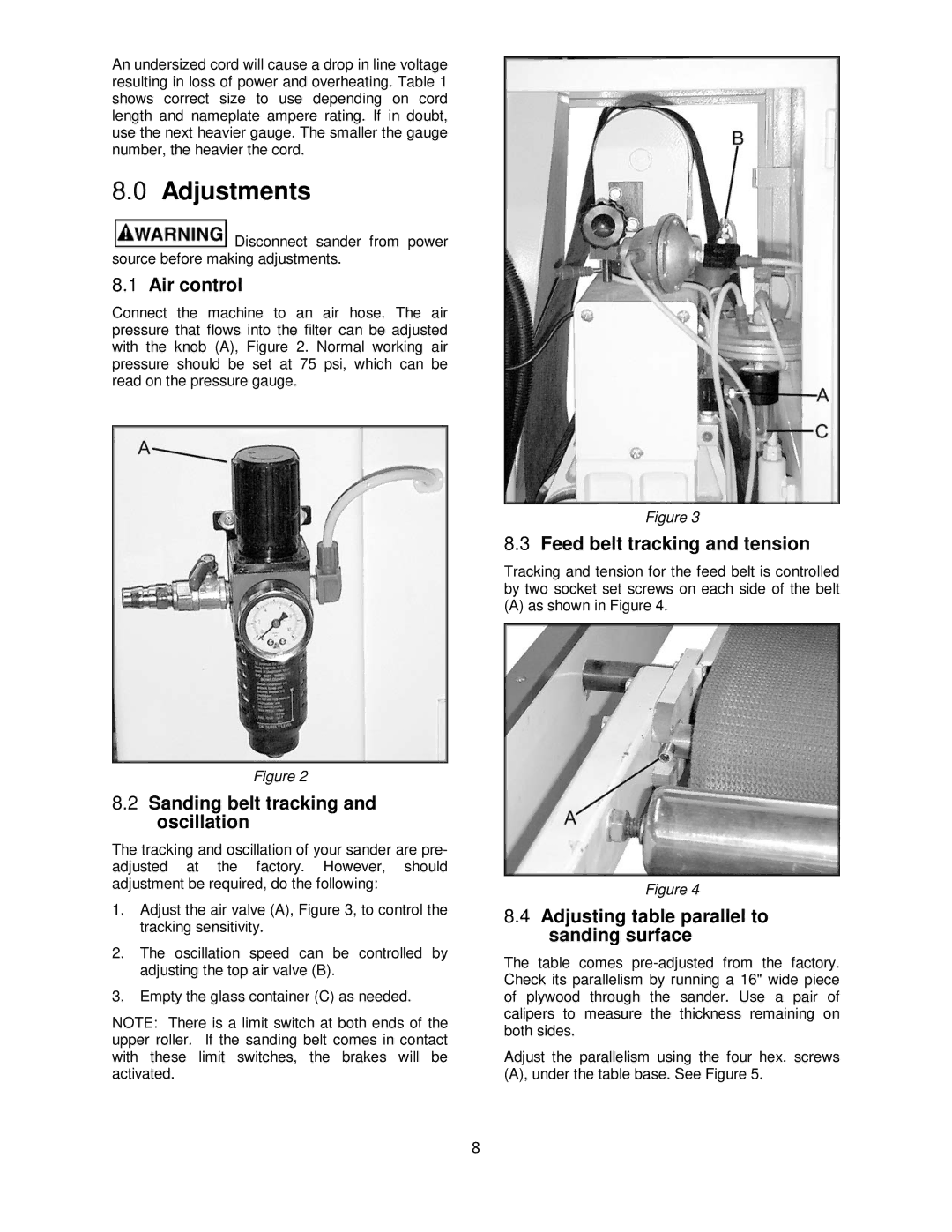
An undersized cord will cause a drop in line voltage resulting in loss of power and overheating. Table 1 shows correct size to use depending on cord length and nameplate ampere rating. If in doubt, use the next heavier gauge. The smaller the gauge number, the heavier the cord.
8.0Adjustments
![]() Disconnect sander from power source before making adjustments.
Disconnect sander from power source before making adjustments.
8.1Air control
Connect the machine to an air hose. The air pressure that flows into the filter can be adjusted with the knob (A), Figure 2. Normal working air pressure should be set at 75 psi, which can be read on the pressure gauge.
Figure 2
8.2Sanding belt tracking and oscillation
The tracking and oscillation of your sander are pre- adjusted at the factory. However, should adjustment be required, do the following:
1.Adjust the air valve (A), Figure 3, to control the tracking sensitivity.
2.The oscillation speed can be controlled by adjusting the top air valve (B).
3.Empty the glass container (C) as needed.
NOTE: There is a limit switch at both ends of the upper roller. If the sanding belt comes in contact with these limit switches, the brakes will be activated.
Figure 3
8.3Feed belt tracking and tension
Tracking and tension for the feed belt is controlled by two socket set screws on each side of the belt
(A) as shown in Figure 4.
Figure 4
8.4Adjusting table parallel to sanding surface
The table comes
Adjust the parallelism using the four hex. screws (A), under the table base. See Figure 5.
8
